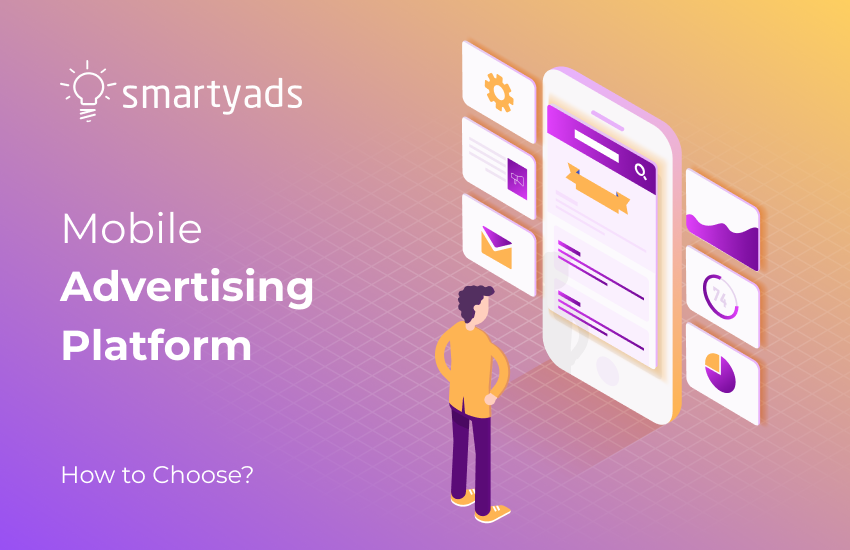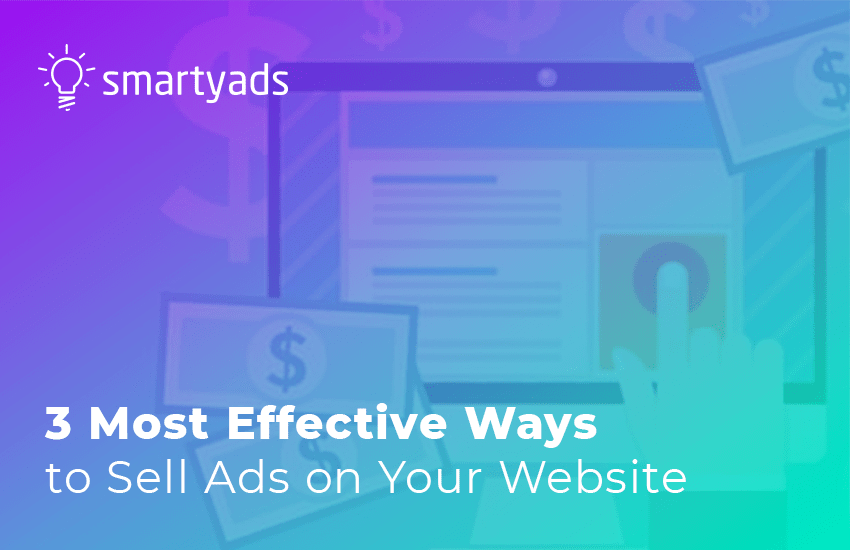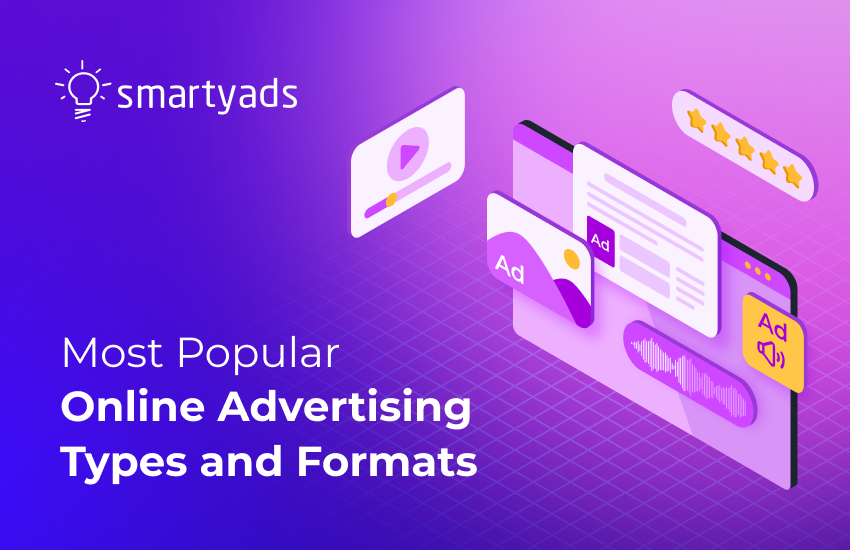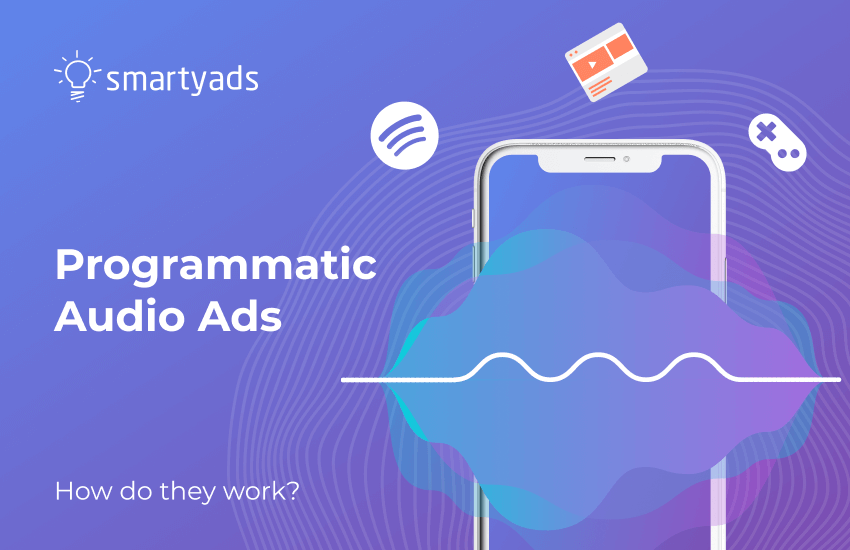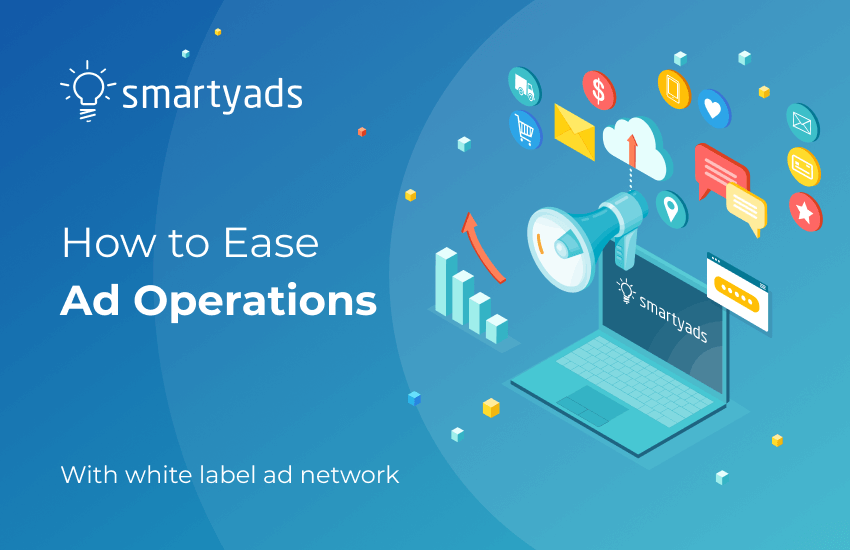How often do you see people looking at their phones? Waiting in lines, at bus stops, waiting for a green light, on public transportation…
Mobile phones are with us everywhere. They are not just part of our everyday life, they are our everyday life. Since phones are so heavily integrated into our reality, the technology around them is constantly and very rapidly evolving.
There are currently 5.34 billion unique mobile users around the world. And by 2024, 1.9 billion of them will be using 5G technology, which is 20 times faster than 4G or LTE.
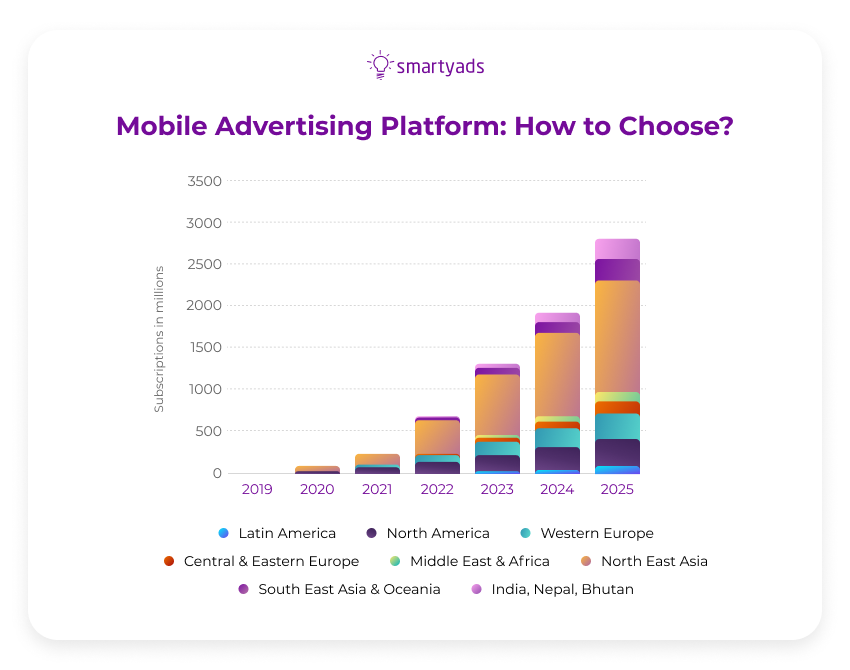
That's why Mobile advertising is a tool that you should pay close attention to right now. So, what are mobile advertising platforms, who uses them, and why do you need them?
What is mobile advertising?
Mobile advertising today exists in many forms and manifestations. It can be launched in a mobile search engine, in a mobile app, or in a game, it can be integrated into the content of a website, or it can be made interactive.
Mobile advertising also includes banners or other types of advertising that the user sees on the screen of their mobile phone, tablet, or even smartwatch.
For example, the users go out for a morning run, and the app in the smartwatch counts their heart rate, number of kilometers, calories burned, etc. As soon as the users finish jogging and check their Instagram feed, the mobile ad platform kindly shows the ads for healthy catering.
Mobile advertising can be programmatic or contextual. How are they different? Contextual advertising works with a user's specific search request. For example, you type "buy an Apple Watch" into the search box, and contextual ads give you several relevant websites or sales offers according to your request.
Programmatic advertising, though, has broader targeting and works with the top of the marketing funnel, attracting potential customers. Ads can be shown not only on thematic websites and not only for the search query but simply to the audience that fits the parameters exposed in the campaign. Such campaigns work very well for branding, targeting, and retargeting new customers.
Marketers have an almost endless number of tools to set up mobile ads, thanks to the rich possibilities of programmatic advertising. These tools allow them to find the most relevant audience for showing ads and then analyze the effectiveness of their mobile marketing.
Next, we'll take a deep dive into the topic of what these tools are about and why they're so useful.
What tools do mobile advertising platforms have?
Analytics
Every mobile advertising platform must have the software to process data about campaign performance. The trends in mobile marketing and especially advertising campaigns change very quickly. Just-in-time analysis of the results can be critical to the bottom line.
Many mobile ad platforms offer metrics for collected real-time data so you can track the progress of the ad campaigns: how users respond to a mobile ad, how much time they spend viewing it, and whether they interact with it. These are all huge amounts of information that the system needs to be able to process.
So, when you choose a mobile ad platform you want to use, be sure to check for strong real-time analytics.
Targeting
To be effective, ads need to be shown to someone who can actually get a useful product. That's why mobile advertising platforms need to have the proper tools for targeting.
The specific audience can be targeted in a whole range of ways:
- Targeting by interest includes users with specific interests according to their online activity;
- Geographic targeting allows reaching users in a specific region;
- Targeting by time offers the opportunity to show your mobile ads exclusively for a certain period. For example, you can show ads for breakfast at a coffee shop between 8 a.m. and 10 a.m.;
- Social demographic targeting considers several parameters for selecting an audience: gender, age, salary, marital status, etc;
- Behavioral targeting chooses the advertising audience based on the user's search request, their online behavior, and the places they visit;
- Targeting by similar audiences uses a preset segment of the audience that might be interested in the advertised product and automatically directs advertising to them.
Types of ads
The mobile advertising platform must support different mobile ad formats, including native ads integrated into content or in-app ads that allow the user to interact with the ad.
For example:
- Rich media;
- Video units;
- Full-screen ads;
- Incentivized display ads;
- Native ad placement;
- Dynamic ads;
- Interstitial ads.
Many mobile advertising platforms also allow you to display interactive mobile ads that users can swipe, pause, or start, and even play mini-games right on the ad block.
These mobile ads tend to be more effective, so it's a good idea to take a closer look at them if you haven't already done so.
Different payment options
To build a successful mobile marketing strategy, you need to know what your advertising budget allows you to do. Find out what payment methods are available on the mobile advertising platform you have chosen and decide on the one that suits you most:
- CPC (Cost Per Click). You pay for each click on your ad;
- CPM (Cost Per Mile). You pay a fixed amount for every thousand impressions;
- CPI (Cost Per Installation). You pay for the installation of your app that came from clicking on a link from your ad;
- CPA (Cost Per Action). You pay for a user who commits a targeted action (for example, a link to your site, or an item added to a shopping cart);
- CPV (Cost Per View). You pay for each view of your ad (a view, usually a 50% loaded banner, which caught the user’s attention for at least one second).
Where to advertise
Mobile advertising is as diverse as desktop advertising. Though maybe mobile ads are even more varied. You can place your mobile ad almost anywhere on your potential customer's smartphone (and even on the lock screen, thanks to push notifications).
So what are the best mobile ad platforms to advertise on?
11 best mobile advertising platforms
There are a lot of mobile advertising platforms, but which one to choose is up to you. Look at all of them and think about which one suits your business more.
1) Google ads
Google ads is something you can see at the top of the first lines right after the search box. Google ads can be both mobile and desktop.
It is good because it is always relevant to the user's request and most people do not even recognize it compared to the organic results, clicking on the first ad links.
At the moment it is one of the most effective and commonly used mobile ad platforms. Google leads the market as a search engine, which means it is a more profitable mobile ad platform to provide a marketplace for advertising.
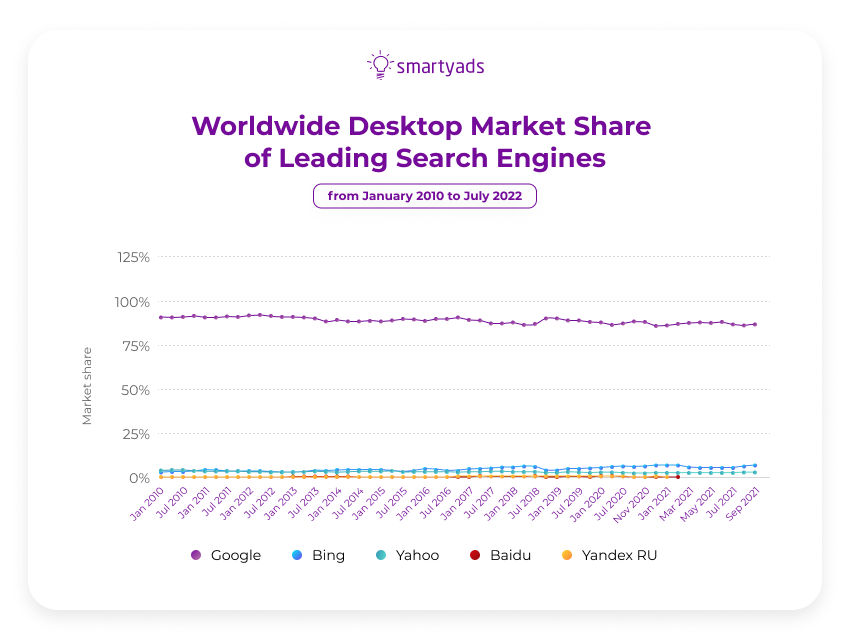
The ad formats available on the Google ads platform:
- Text ads;
- Search ads;
- Banner ads;
- Video ads;
- True View ads for mobile apps.
Google is one of the biggest global corporations with a huge number of resources. So it's no surprise that the analytical tool on its mobile ad platform is one of the best. It allows you to see detailed statistics of users' activity, which helps a lot in building a further advertising strategy.
2) Facebook ads
73% of marketers say their mobile advertising campaigns through social media were "very effective" or "effective enough". So you should pay attention to Facebook ads.
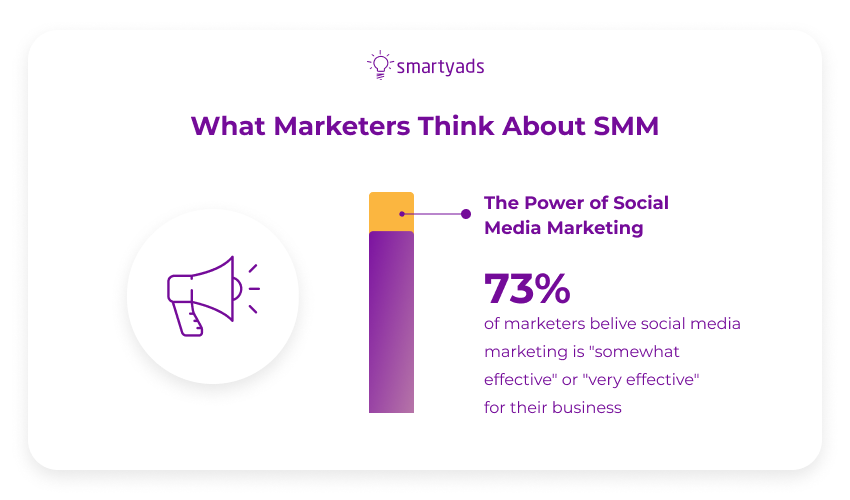
Facebook has an extremely large audience, so it's no surprise that it created its own mobile ad network. It gives you the option to choose the type of ads you want to publish.
The ad formats available on the Facebook ads platform:
- Banner ads;
- In-stream video ads;
- Rewarded video ads;
- Native ads;
- Interstitial ads.
3) Instagram ads
Instagram is another good mobile ad platform. It's the part of Facebook mobile ad network. Since Instagram was originally created as an app for mobile devices, ads on this network are also aimed mainly at this type of device. That is one of the best mobile advertising platforms and also a leading mobile ad network.
Today, Instagram is one of the most popular mobile apps in the world. Statista conducted a study and found that Instagram currently has more than two billion users around the world.
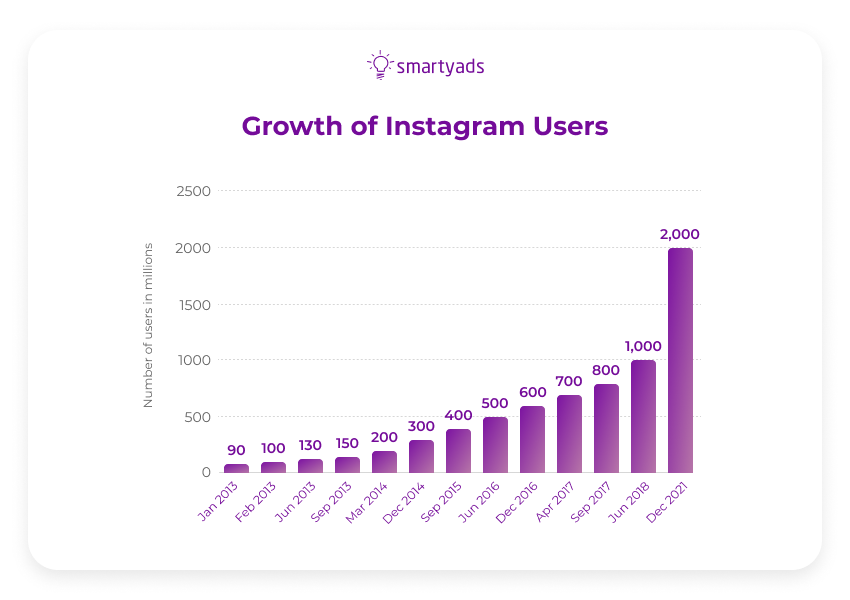
You can also manage your Instagram ads from your Facebook ad account. So, if you need to advertise on both Facebook and Instagram, you can manage them and track their effectiveness from one place.
Meta, which owns both Facebook and Instagram, has created some pretty accurate tools for setting up and analyzing ad campaigns.
During the ad campaign setup phase, they allow you to define your audience quite accurately, and during the ad campaign launch and running phase, you can see in detail how users are interacting with your ad.
The ad formats available on the Instagram ads platform:
- Video ad;
- Images;
- Carousel;
- Instagram Stories.
4) Bing ads
Bing is not the most popular search engine, indeed. Bing's market share among search engines is 2.47% in the world. However, it also gives Bing ads a solid advantage, because on average, advertising on it will cost you 70% less than search ads on Google ads.
A small market share does not mean that it is not profitable. Statistics show that about 1 billion searches pass through Bing every month.
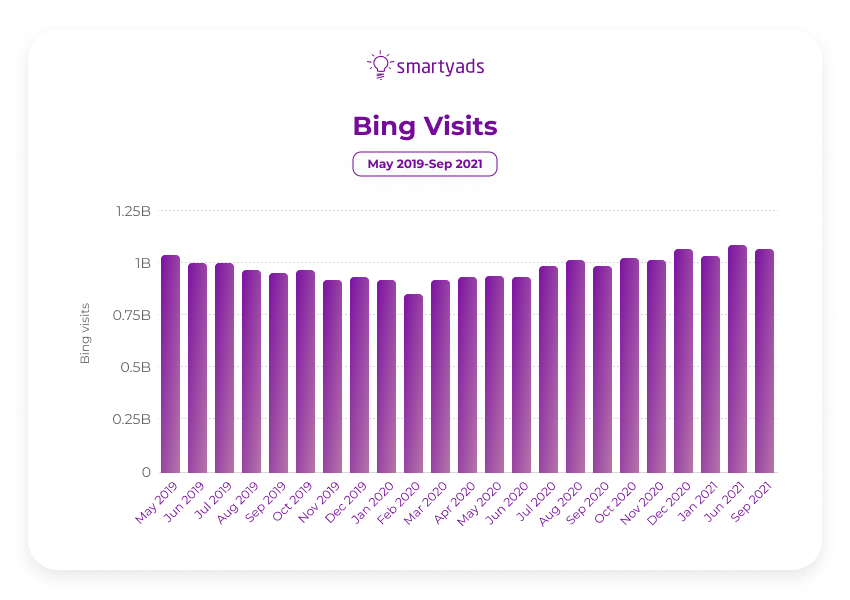
Thus, Bing has a very large mobile advertising platform, and its toolbox allows you to control location, language, scheduling your traffic, etc. Take a look at this option, especially if you're on a tight budget.
5) Apple Search Ads
Using this mobile ad platform, mobile publishers can be sure that your app will stay at the top of Apple's search results.
You can easily track the effectiveness of your advertising campaigns. The platform also provides a good interface for managing and modifying ad campaigns. And the advanced version allows you to choose the target audience and keywords for the searches for which the mobile app will be displayed to the user.
6) Snapchat
By the first quarter of 2022, the mobile app Snapchat has about 332 million daily users. Created in 2011, when it experienced a major boom in popularity, the app nevertheless continues to grow and gain popularity year after year, which makes it a great platform for running a mobile ad campaign.
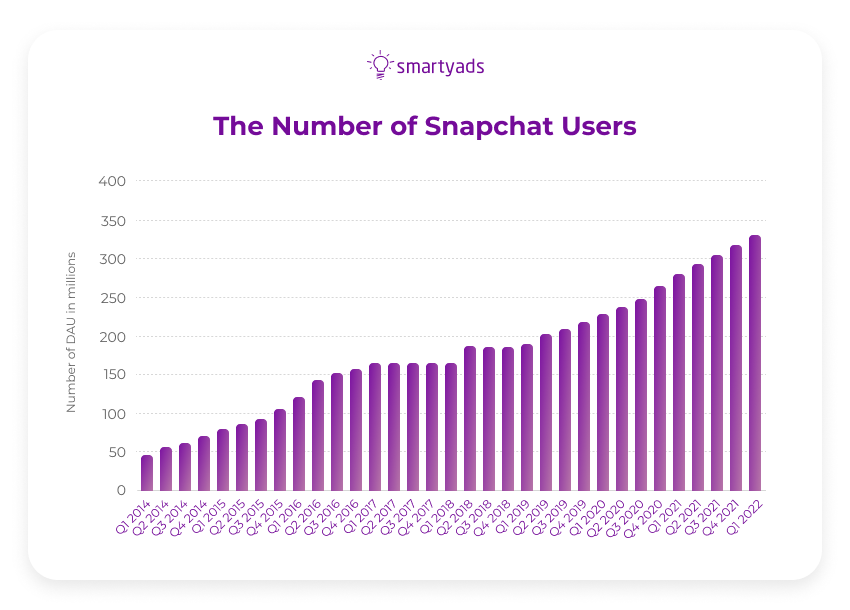
The platform has audience segmentation tools, which makes it quite convenient for targeting. It's worth noting that Snapchat remains the app with the majority of young users (48% of U.S. users are 15-25 years old). So the platform is most relevant if you want to reach an audience of this particular age segment.
Programmatic platforms
We already talked about programmatic advertising above. These are automated ads that work at the top of the marketing funnel. Such advertising services provide an extensive toolkit for targeting and setting up campaigns. Let's take a look at a few of these services.
7) SmartyAds
SmartyAds is one of the leading programmatic advertising platforms. A large toolkit allows you to set up campaigns correctly and quickly, and the constant increase in the number of ad platforms provides an ever-growing number of places to post ads. SmartyAds currently serves 366,847 impressions per day. The average CTR is 5.48% and the price per thousand impressions is about $1.01.
We have added our platform to the list of the best advertising platforms because it meets all the criteria of a leading platform. We have created a very high-quality and user-friendly tool and we are proud of it.
Some statistics about which business areas use SmartyAds the most:
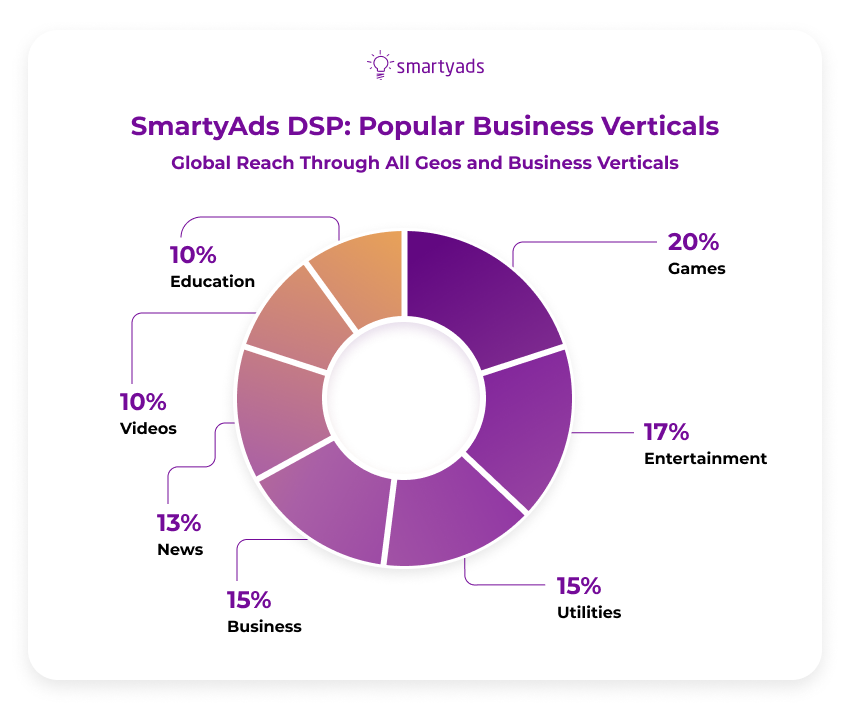
8) AdMob
Google bought AdMob in 2009, and since then it has been the most popular tool for app advertising.
The service is popular not only among advertisers but also among mobile app developers because it allows them to receive app monetization by displaying ads. It is also user-friendly as it lets mobile users choose which ads to display and which ones are not relevant.
Almost all businesses use this type of mobile advertising.
Moreover, ads in AdMob can be run from the Google Ads cabinet.
The ad formats available on the AdMob platform:
- Banner ads;
- Video ads;
- Native ads;
- Full-screen ads (an ad that popup to cover a user's entire mobile screen).
9) Airpush
This is the second largest mobile ad platform. It is available for both Android and iOS mobile devices. Airpush also provides app monetization for mobile app developers.
The ad formats available on the Airpush platform:
- Push notifications;
- Video ads;
- Overlay ads;
- Rich media ads (an ad that offers an interactive experience);
- Post-click landing page ads;
- In-app banners.
10) TubeMogul
This is an advertising platform from Adobe, it is created as a demand-side advertising platform. This platform was created to prevent fraudulent ad traffic recruitment schemes from spreading. This means it protects the advertiser from bots or other non-human elements viewing the ads. As it is a DSP, this means that it collects data and mobile publishers from a large number of sources.
11) Millennial Media
This is a platform that provides a great advertising tool for gaming app developers and other mobile advertisers. The Ad Network Mediation system allows the display ads from other networks.
Analytical tools and systematization of all programmatic systems of this platform allow studying any changing of key indicators during an advertising campaign in detail:
- Pricing;
- Targeting;
- Date range.
The platform also allows targeting traffic to the most profitable network for you based on their percentage of profitability. This and other features of this platform make Millennial Media a favorite among advertisers.
Some tips for choosing the right mobile advertising platform
There are several ways to choose the right platform. First of all, you need to determine the areas you need to think hard about. Here's what you should do:
Know your customers
This is universal advice for advertisers. If you want your potential customers to buy your product, you need to know how old your customers are, their salary, social status, marital status, and the values they share. And while in traditional advertising these questions may be on the sidelines, when we're talking about digital advertising, they become critical.
If you know your audience well, you know who you want to show ads to. You will clearly understand what your audience is interested in, what sites they visit, and at what times. This helps a lot in the setting up of an advertising campaign.
Make sure you have enough experience in advertising
Depending on what your goals are and how familiar you are with the world of mobile digital marketing, different types of advertising platforms may suit you. For example, if you choose programmatic advertising platforms such as DSPs, you can go for the option for experienced marketers (self-serve) or those who still need assistance or don’t have enough time for running and managing campaigns (managed serve option).
Self serve DSP
This type of advertising platform is good for you if you're familiar with advertising or if you want to personally control every process that goes into creating ads and running an ad campaign. This option will allow you to start, stop, and adjust your ads yourself.
Keep in mind that you will have to dedicate a certain amount of time to this because even the best and most automated advertising service requires some configuration.
Full-service DSP
This type of DSP provides services for setting up and managing ad campaigns. They are similar in some ways to marketing agencies that provide such services.
In this case, this service will cost more, but also the work will be done by professionals who know their business very well and, importantly, who follow the rapidly changing trends in the world of advertising.
Complete transparency and security of mobile advertising
The fraudulent use of digital ads has been a serious problem since its inception. Because of unauthorized traffic, bots viewing ads, and other fraudulent schemes, the effectiveness of ads drops and they become useless.
Welcome to the world of mobile advertising!
In this article, you learned about the main features and services of mobile digital advertising. We hope you'll find them useful and helpful in choosing and effectively using the right mobile advertising platforms.
